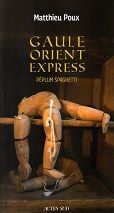Voici un article intÃĐressant publiÃĐ par A.L.F RIVET & Colin SMITH, dans The Place-Names of Roman Britain, Ed. Batsford Ltd. London. 1979 / 1982.
******************
En anglais dans le texte. DÃĐsolÃĐ !!!!!!!!
******************
Source :
Ravenna 107-4 ( = R&C 119) : BIBRA
Derivation :
The first r in Ravenna's form is intrusive (compare Bribilia, Ravenna 71-40). Bibra seems to be the feminine of the British word for 'beaver', strictly a river-name transferred (as often) to a settlement. The animal was *bebro-s or *bibro-s (Old Cornish befer) and in Gaulish *bebro-s (recorded by two late latin writers in latinised form as nominative beber and accusative bebrum), cognate with latin fiber; there is also Gaelic beabhar. the Indo-European word is postulated as *brebhr or *bhe-bhru-s, a reduplication of the word for 'brown'. As a river name Bibra is 'the brown one', but a literal 'beaver-river' is by no means impossible; the animal existed in Britain into Anglo-Saxon times, and it may be significant that Tacitus (Histories, II-24) mentions another place Bebriacum as 'locus castorum'. The Celtic word for 'beaver' entered into a number of names, such as Bibracte > Mont Beuvray (NiÃĻvre, France) and Bibrax Remorum now Vieux-Laon or Vieux-Reims (Aisne, France). Dottin, LG 89, mentions the river Brebronna > Brevenne (RhÃīne, France) and the river *Bebris > BiÃĻvres (Aisne, France). Others are mentioned by Holder, I362 / I-415 / III-819. Compare BIBROCI (next entry). See R.Sindou, 'Noms de lieux qui rappellent celtique *bebros "fiber", Actes et MÃĐmoires du Ier CongrÃĻs International de langue et littÃĐrature du Midi de la France (Avignon, 1957), 303-308".
**********
Sorry.
JC Even


